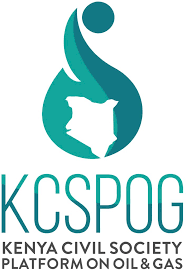Kenya’s Crude Pipeline: Through People to Market (November 2018)
The Report analyses potential legal, Social and Economic Challenges to the development of the Lokichar- Lamu Heated Crude Oil Pipeline
Kenya’s Crude Pipeline: “Through People to Market” (November 2018)
This report seeks to analyse the key impediments to the development of the 821Km Pipeline from Northern Kenya- Turkana- to the Lamu County. The pipeline remains a key prerequisite to Kenya’s realisation of profitable oil production.
The report heralds key findings on the Pipeline as below:
1. A heated pipeline will be much more expensive to build and operate than a normal pipeline. In illustration crude from the Amosing well in Turkana will need to be heated to 85 degrees as the wax appearance temperature has been measured at between 60 degrees and 63 degrees. As a result, the tariff for the Lokichar-Lamu pipeline will represent a significant portion of the overall costs for the Turkana fields thereby reducing Kenya’s share of profits from Crude Oil.
2. A Community share of tariff of even $ .50 cents would encourage buy-in and shared benefits especially as they are taking the brunt of the impacts. Cost overruns brought about due to delays would arguably be more costly in the long-term
3. While the IEIA Process in Kenya is rigorous, there still exist loopholes when it comes to public participation especially in the community meetings
4. The Government stands to generate as much as $1 billion in corporate tax over the lifespan of crude oil exports through the Lokichar-Lamu pipeline.
The report calls for Tullow and its joint venture partners in collaboration with NEMA to ensure that a summary of the EIA Report is presented to communities in a language and format that they can easily understand to ensure adequate participation of the host communities. Structured EIA Meetings and consultation for the pipeline project should begin early in the project lifecycle and continue throughout the project.
From the analysis, it is evident that land acquisition and compensation ought to be carried out carefully recognising the rights of communities who do not hold title deeds such as pastoralist communities
The report further recommends that Financial Agreements relating to the pipeline should be publicly available to ensure that the Kenyan government protects future revenues
Overall the report recommends that the Government of Kenya should conduct an independent Integrated Economic Analysis of the Pipeline and Upstream operations. This will inform key policy decisions and enable the government to negotiate for a better deal and make necessary adjustments to the economic and financial arrangements.
Press Contacts:
Kenya Civil Society Platform on Oil and Gas
info@kcspog.org
Tel. +254735421086
